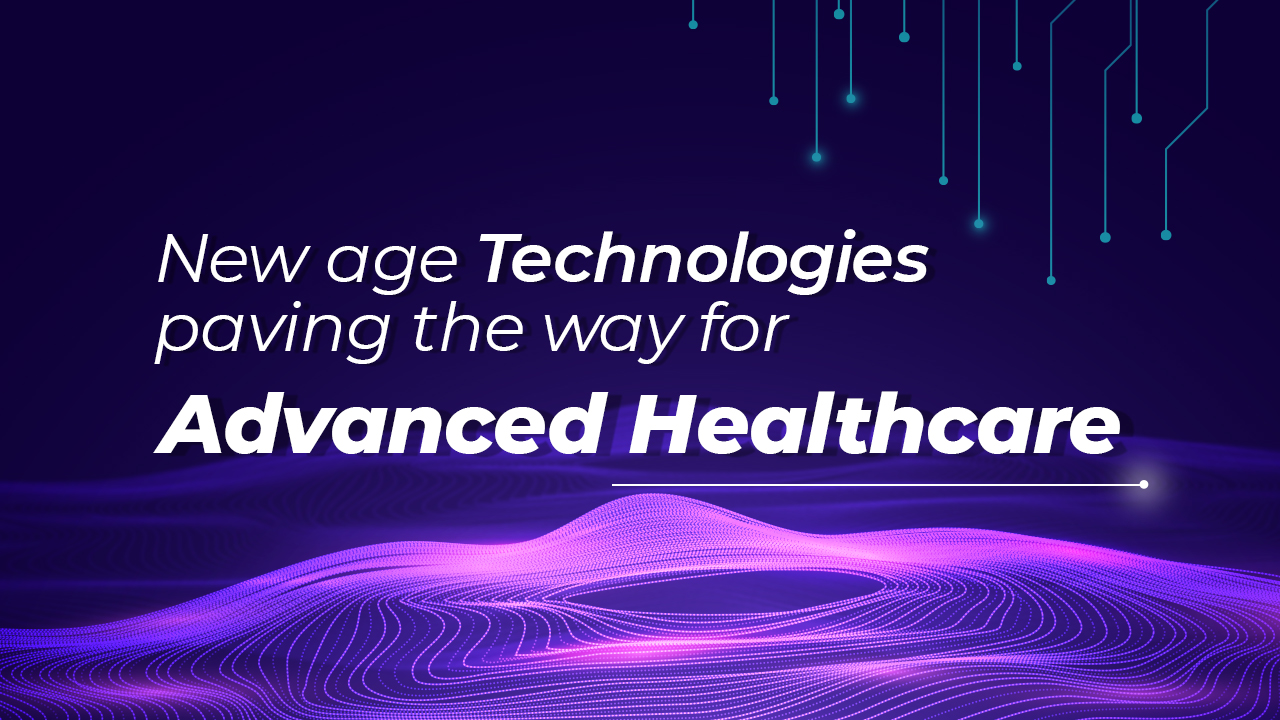
New Age Technologies Paving the Way for Advanced Healthcare
The global health care services have witnessed rapid digitalization leading to better patient outcomes and improvement in the health of the patients. Technology has played a huge role here, with respect to how health care was provided and received across the globe. New age tech, especially Artificial Intelligence (AI) is at the forefront of this revolution. There are a number of use cases where implementation of AI in healthcare has resulted in multiple benefits in areas such as drug discovery, personalized care for chronic diseases, predictive healthcare diagnosis, etc. and at the same time playing a vital role in helping the world fight the pandemic.
With the help of AI and machine learning, healthcare industry around the globe was able to derive better insights and provide personalized care facility to the patients. There is no doubt that decision makers in the sector understood the importance of technology adoption and areadopting these emerging technologies to reach new heights.
Healthcare industry has been doing trail run, pilot- projects with several technology development, but adoption of AI and High-performance computing (HPC), has benefitted the most. The democratization of AI and HPC, organizations of any size and from any industry can now gain a competitive edge by harnessing the power of data. The modular building block approach of deployment-ready solutions bring speed and flexibility by allowing for quick set-up and easy scaling. While technology over the years is playing a central role to advancements in medical research, pharmaceutical development and treatments, HPC is helping to boost the sector. With the adoption of IoT sensors, and 5G technology in coming times, we're going to witness data explosion and analysis that will transform the healthcare industry, resulting in more personalized and better medications for all. Thanks to the convergence of HPC, data analytics and AI, the healthcare sector is set to become data-driven and better equipped to respond in more personalized ways.
Big data leading to big advancements in healthcare
Life sciences and medical research institutions, particularly genomics and precision medicine are applying AI in remarkable ways, thanks to innovative machine learning models, trained using data from old experiments. By analyzing the genetic designs, researchers can approach each case with more efficiency and accuracy. They can customize treatment models to prescribe the most effective drugs, while at the same time avoiding side effects.
Accelerated genomic sequencing have a marvelous impact on the global fight against COVID-19, since the insights derived through this technique means faster understanding of the sub strains of the virus, its infectiousness, and a modelling on how it spreads through a population.
Using data to drive personalized healthcare
Personalized use of smart devices mean more data to drive health insights. In the next few year, we will witness smart households driving health outcomes through better monitoring at the edge and fast medical responses. Since we are already well accustomed to wearing devices to track our exercise and fitness levels, interpreting that data with AI and HPC will aid in early diagnosis of health problems and help to set the appropriate pathway for treatment. Imagine a time when an individual can accurately understand their health condition before even speaking to a doctor.
Technology that advances humanity
As access to AI and HPC becomes part of medical research every day, we can expect to see more organizations reaping the rewards by integrating AI into their infrastructure. We can anticipate that the market will continue to expand with HPC, AI and data analytics solutions and tooling converge. Additionally, we will see the adoption of Graphics Processing Units (GPUs) continue to drive AI, which will pave the way for a new line of Intelligent Processing Units (IPUs). Combined, this will further accelerate the role of data across all industries and while adopting new ways of working can seem daunting for organizations, technology vendors are well-positioned to help businesses navigate unfamiliar terrain.
Medical research has already achieved massive success with both AI and HPC. By automating baseline data interrogation, humans are free to focus on the finer points of research and discovery. For the areas of healthcare and medical research, HPC will be the critical and X factor in the fight against the diagnosis of rare diseases, paving the way for a new era of preventative healthcare.
About the Author:
Manish Gupta, Senior Director & General Manager, Infrastructure Solutions Group, Dell Technologies India.
